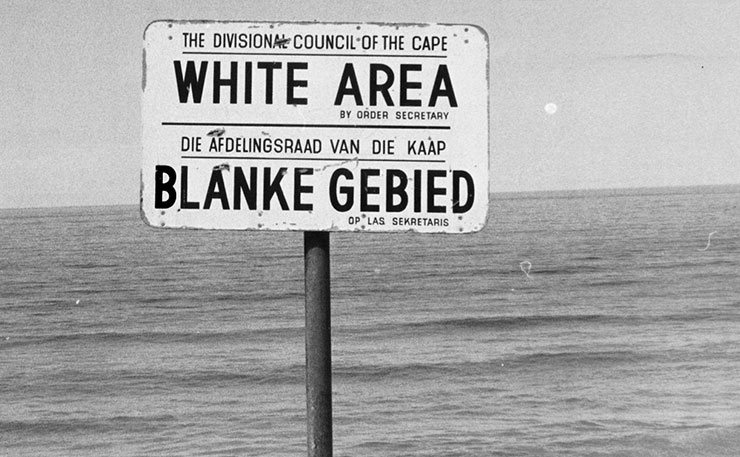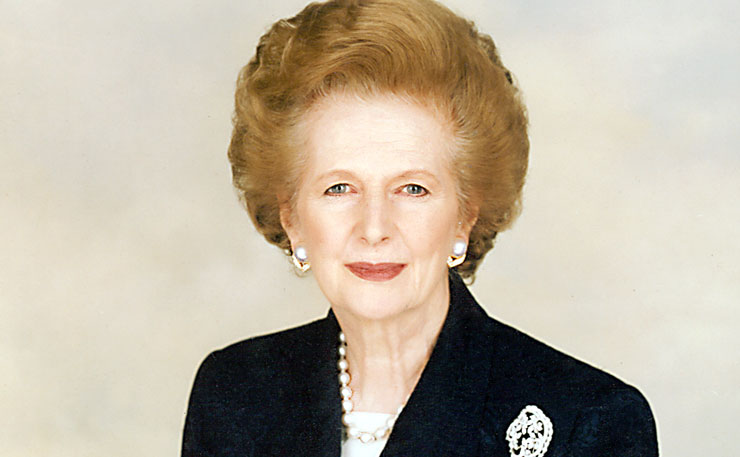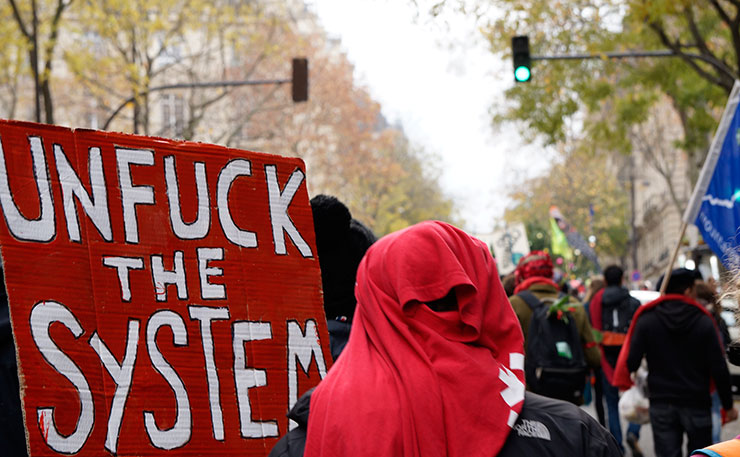OPINION: Change is happening, but not in the ways that Marx predicted. Richard Hil explains.
Everyone has a theory about change: what it looks like, what and who it takes to bring it about, and when and where it might happen, or not.
More often than not, such hypothetical speculations are turned into biblical truths intended, above all, to prevail over other truth claims.
At worst, this form of evangelical dogmatism is accompanied by certain cognitive rules: failure to comply means you’re either a heretic or dumb – you simply don’t get it.
Currently, I’m interested in the assertion that change will only come about once we topple institutions linked to the global financial system, or what some like to refer to as “the establishment”.
The main struggle, or so we’re told, is to persuade others that such change is the only way forward and that all other avenues are pointless, naive and doomed to failure.
Adherents of this change agenda loathe any suggestion of merely tinkering with the system. It’s overthrow or bust.
For me, the word tinkering evokes memories of my then (1970s) Marxist-inspired mentors who insisted that only by unseating the bourgeoisie and dismantling the state would we bring about the proletarian nirvana.
Consequently, I was advised – instructed might be a better word – not to join the Anti-Apartheid movement since this was a reformist obstacle to the revolutionary juggernaut.

Dutifully, I deferred my AA membership for several years, by which time the said system was on the verge of collapse (and the revolution still hadn’t eventuated!).
These days I’m being told by some of my colleagues, again in rather insistent tones, that to focus on the refugee question, clean energy, or to talk about election campaigns, terrorism or the bombing of Aleppo is to miss the fundamental source of all our current troubles: yes, the global financial system.
In fact, this is all I seem to hear these days. It’s the current biblical truth, at least in some circles.
But it’s a rather hackneyed truth: this stuff has been raked over for decades. There’s nothing new about it, nor about the anti-Semitism that tends to shadow this topic.
Nor is the assertion that corporate capital dominates most aspects of the global economic system especially new: this was discussed at length in Paul Baron and Paul Sweeny’s Monopoly Capital in the late 1960s and in later works by Emanuel Wallenstein, Manuel Castells and David Harvey, among many others.
Much earlier still, Marx and Engels and their various followers said much the same. Many of these theoreticians also declared that revolution was just around the corner. It was simply a matter of time which, when you think about it, isn’t really much of a prediction.
Revolutionary change has occurred of course, as we well know, with varying results and along with the usual counter-revolutions and bloodbaths.
Despite all the confident forecasts, what has characterised late capitalism (and it’s been “late” for quite some time) has been its remarkable ability to absorb and co-opt much descent (not all) and to create a hegemonic order that normalises capitalist values and practices.
Politically – within the confines of liberal democracy – this has led, as Tariq Ali puts it, to the creation of an “extreme centre” which solidifies neo-liberalism as the fabled “end of history” and renders all other systems, real or imagined, heretical.
Quite simply, as Margaret Thatcher (in)famously put, it “there is no alternative”.

Silly really, because there are thousands of alternatives and, as we’re all aware, the current system is prone to periodic financial crises, massive inequality, and is responsible for wars, conflicts and that little problem called anthropogenic climate change.
The latter, as Naomi Klein insists, changes everything because it’s a threat to our very existence. But the predicted change may turn out to be a lot messier and unpredictable than some would like.
Corporations are already jettisoning investment in fossil fuels – especially coal – in favour of clean energy. This will undoubtedly lead to green-wash-with-a-vengeance.
And yet, given that we’re currently pumping out more CO2 than ever (and exporting coal hand-over–fist to whomever), the change we so urgently need is unlikely to happen quickly enough.
It’s already too late for those in low-lying atolls and in sub-Saharan Africa, not to mention many other parts of the globe.
The swelling numbers of climate refugees will make the current exodus from Syria and elsewhere look like a trickle. Any remaining open borders will be hurriedly closed and the rich will retreat into their fortresses.
Economically, the rich and powerful will push for business as usual.
The change needed to offset all this is unlikely to be revolutionary – as in one system immediately replacing another – and will certainly not come simply through raised awareness of, and opposition to, corporate greed, as the Occupy movement discovered.
Change to “the system” – which comprises key private-public institutions, organisations and agencies, as well as you and me – is happening and cuts across the globe in a multiplicity of ways.
It’s change that’s cognizant of the complex ways in which each of us embody aspects of corporate capitalism, and which eschews thinking that borders on “economic determinism”, or that attributes everything in life to a single source or cause.

It’s change that’s lateral rather than linear, organic rather than singular and pre-planned; individual and collective, diverse, fragmented, and sometimes chaotic and disruptive.
It’s also part-revolutionary and part-reformist, principled and pragmatic, often working the pressure points of the so-called “military-industrial-media-entertainment complex”.
Above all, its paradigmatic change coalescing around shared values that privilege the health, happiness and well-being of the planet and people over economic enrichment and material acquisitiveness.
We see this happening in various spheres, from the spiritual and ecological to the questioning of neoliberal orthodoxies like economic growth, GDP, debt and profit.
Growing numbers of people are beginning to contemplate other more equitable, sustainable and peaceful ways of being.
More of us, as Satish Kumar has predicted, will talk of “soil, soul and society” rather than the “economy”, and we’ll measure “progress” against the value markers of kindness, compassion, respect and care rather than “productivity, share values and profit levels.
All this will involve us in dissembling our preferred and accepted approaches to everyday life. We’ll have our own personalised “signature” revolutions and reform agendas, culled from our re-imagining of how life could and should be lived on Earth.
The material consciousness associated with industrialisation, the scientific rationalism of the enlightenment, and the old binaries and dualities will gradually give way to a new epoch based on more humane and localised values and practices.
The most vital task from here, it seems to me, is to tell a good, persuasive story about the future: one that offers the prospect of a spiritually richer, more equitable and ecologically sustainable life.
This doesn’t mean returning to some sort of Edenic village-type existence. Rather, it’s about propagating localised connections – the “village effect” – in various centres, including towns and cities, and across the globe.
We also need to consider how digital and other technologies, sustainable productive practices, and principles of social justice and human rights can meaningfully intersect.

In the meantime, we should continue to protest, hold the powerful to account, support the down-trodden, push for the dismantling and replacement of the global financial system and militarism, raise awareness of localised alternatives to globalisation, and seek to live the sustainable life that matters.
We might also engage ourselves and others in reflexive conversations about what sort of consumption is desirable and sustainable, what sustainable cities, towns and villages might look like, and how we can build meaningful relationships in a transformational world.
One thing’s for sure: the ravages of climate change will indeed change everything, and the global environmental movement – the biggest movement in human history – has a vital role to play in shaping what the future of our planet might look like.
And that process will involve multiple truths.
Donate To New Matilda
New Matilda is a small, independent media outlet. We survive through reader contributions, and never losing a lawsuit. If you got something from this article, giving something back helps us to continue speaking truth to power. Every little bit counts.





